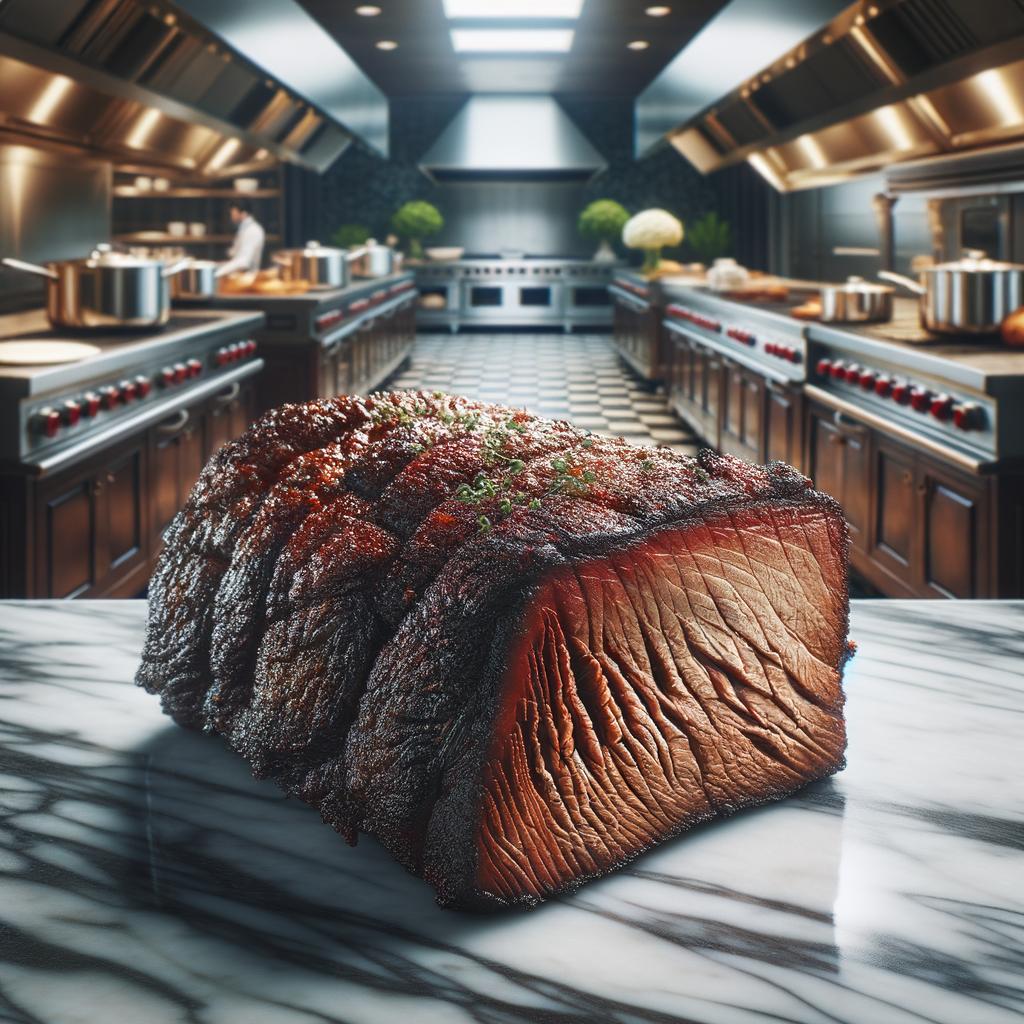Brisket

Description
Brisket is a cut of meat from the breast or lower chest of beef or veal. It is one of the nine beef primal cuts, and its thickness varies, with the bulk of the meat concentrated in one end. The texture of brisket is quite dense and fibrous, but when cooked slowly at a low temperature, it becomes extraordinarily tender, practically melting in your mouth. Its flavor profile is rich and beefy, and it's often described as having a "savory sweetness." Brisket has a unique characteristic in that it contains a substantial amount of connective tissue, which can be transformed into gelatinous, mouth-coating richness through slow and low cooking.
Primary Uses
Brisket is a versatile ingredient used in a range of cuisines and dishes. It's often slow-cooked or smoked in traditional American barbecue, braised for Jewish Passover, and corned in Irish cuisine. In Asian cuisine, particularly Korean and Chinese, it's used in soups and stews. Beyond its culinary uses, brisket holds cultural significance in many societies. For example, in Texas, smoking a brisket is a time-honored tradition, often a day-long affair that brings families and communities together.
History
Brisket's history is as rich and varied as its flavor. The word "brisket" comes from the Old Norse 'brjósk', meaning 'cartilage', as the cut was often used to refer to either the breast of an animal or the human chest. In the United States, brisket became particularly popular in the South, where it was often smoked over a low fire for a long period, a technique brought by German and Czech immigrants in the 19th century. In Jewish culture, brisket has been a staple of Passover Seders for generations, often braised with root vegetables. Over time, its use and popularity have evolved, with various cooking methods like smoking, braising, and curing gaining favor in different cultures and regions.
Nutritional Information
Brisket is a good source of essential nutrients. It's high in protein, which is vital for building and repairing tissues. It also provides a substantial amount of iron, zinc, and vitamin B12, which are important for blood health and immune function. However, it's also high in fat, especially saturated fat, and cholesterol, so it should be consumed in moderation. Compared to other cuts of beef, brisket tends to be higher in fat, but this contributes to its unique flavor and texture when cooked properly.

